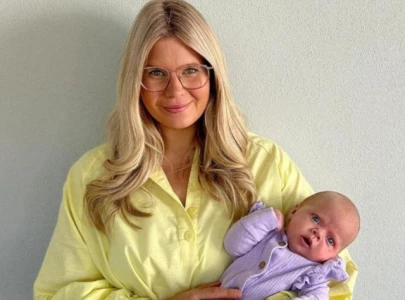
In the congested Shah Baig Lane of Lyari, people rush about their daily business, glancing sideways to make sure they don’t collide with a speeding rickshaw or galloping donkey cart.
Before ushering me inside the school-gate Raza, whose youthful looks mean that can easily pass off as a student himself, introduces himself as the General Secretary of the Educational and Welfare Society.
The gate opens into a narrow hallway, and I expect the hallway to open into a modest yard with a few ramshackle buildings. Instead, I am greeted by a huge playground surrounded by row after row of neat, solid-looking classrooms.
Home to 600 children, the Shah Baig Lane Educational and Welfare Society is the brainchild of six determined people working single-mindedly to provide education to the poor children of Lyari. It’s a labour of love, and while the success of the project is now attracting donors, the society started off with no resources at all.
“It was not at all easy,” says Ghulam Nabi Afshari, an ever-smiling old man who is the President of the society. “But it was better to use what meager resources we had rather than beg for money or try to have people take pity on us.”
Where others saw only a dilapidated building that was being used as a garbage dump, the six-member group imagined a bustling school. The building was already occupied by heroin addicts and petty criminals, but that didn’t discourage them.
“We started sitting inside to give an impression that it (the building) is ours,” says Raza. Only a few got the message and they finally had to seek the help of Additional District Executive Officer, Asadullah Bhutto to acquire the land and help get rid of the addicts. Once people saw they meant business, the floodgates opened.
“The money came from local residents. Everyone pitched in, right from the paan-stall owner to the school opposite us. Even unemployed people who just laze around all day also lent a hand,” says Ghulam Fareed, the finance secretary of the school. With a straight face he adds: “I had to justify my designation, after all.”
Ignoring Fareed’s quip, Afshari starts complaining about the dearth of schools in the area and the lack of state attention. “All this talk about bringing a change in the school system is complete rubbish. We are on our own when it comes to thinking about the future of our children,” he fumes.
And he seems determined to leave the government sector in his dust. He says his school has a Montessori, “which cannot be found in any other Government-run school,” and also offers coaching classes. Language is taught by an immaculately dressed man who, on being asked, politely told me that he began his teaching career holding classes on the roof of a friend’s house. “But when this school opened, I was asked to teach here and my students followed me.” The school fee is Rs200 but it can be reduced depending on the income of the students’ families.
The spirit of volunteerism that the staff has is inspiring; a maid comes all the way from Liaquatabad after taking two different buses, just to sweep and clean the floors… for free. Most of the teachers are also volunteers who come in for two hours in the morning to teach.
The students themselves come from both the neighborhood areas as well as from further afield. They include three-year-olds and thirty-year-olds alike. Most of the children come from either broken homes or orphanages, while some of them have lost their family members in the all too regular violence that plagues Lyari.
Mention the gang war and the smiles fade away as if by magic.
“You mean to ask whether this so-called “gang war” has had any impact on us?” asks Afshari in an icy tone. I nod in affirmation and he grows silent. A few seconds later he says the term gang war has been severely misused.
“There is more to Lyari than gang wars. We have a history of producing scholars, professors and sportsmen who have been leaders in their fields, but to an outsider Lyari is all about gang wars,” he says vehemently, looking at the others in the room for support.
Raza adds that this is an “ideological war” between political parties in which the people are left to fend for themselves. And that’s exactly what these people are doing — trying to re-instill hope in the youth by teaching them skills that will take them away from a life of poverty and crime.
The language teacher spoke about one of his students who joined a gang. “After pleading with him I finally managed to bring him out of their clutches as I knew his father, and could not bear the thought of him lying dead in a street corner.” His efforts eventually paid off and the student is now in the United Kingdom, working as a system engineer.
But not all the stories have a happy ending. Fareed says that they can convince young people once or twice but with rampant poverty and unemployment all around them, the kids simply stop listening after a while. “The motivational speech we give them in such circumstances becomes just that: an empty speech.”
“We could not control the ones that we lost in the past,” said Afshari referring to the ones who took up arms after getting tired of unemployment, “but we can surely guide these children towards the right way.”
A screech from the nearest Montessori class distracts us, diverting our attention from gang wars and political neglect to a little girl reciting a poem in a high, shrill voice. In this little corner of Lyari, hope still remains alive.
Published in The Express Tribune, Sunday Magazine, April 24th, 2011.


1727778647-0/diddy-(16)1727778647-0-165x106.webp)

1732014631-0/BeFunky-collage-(71)1732014631-0-165x106.webp)












COMMENTS (1)
Comments are moderated and generally will be posted if they are on-topic and not abusive.
For more information, please see our Comments FAQ